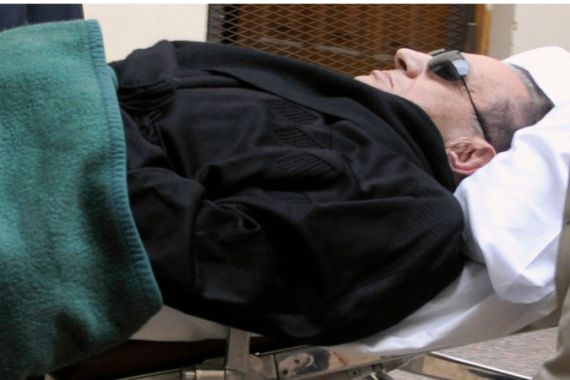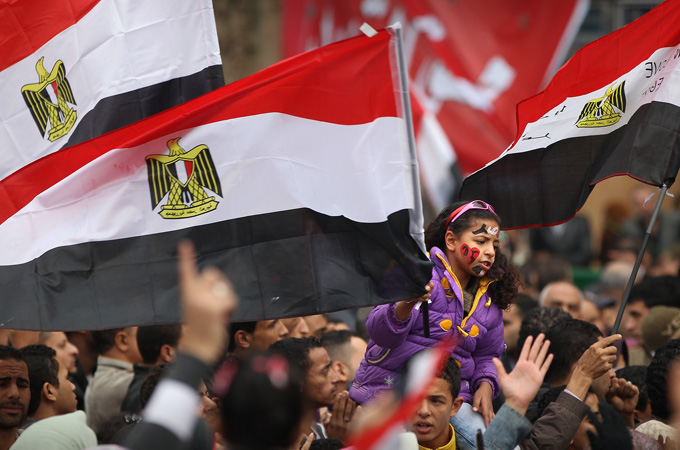Death penalty sought for Egypt’s Mubarak
Prosecution says ex-president and aides are “politically and legally” responsible for killing of protesters.

 |
| Mass protests against Hosni Mubarak’s rule toppled his presidency last February [Getty] |
Egyptian prosecutors in the case against Hosni Mubarak have demanded the death sentence for the former Egyptian president and other defendants, including the former interior minister.
“The prosecution demands the maximum penalty against Mubarak and the rest of the accused which is death by hanging,” Mustafa Khater, a member of the prosecution team, said on Thursday during a court session in Cairo.
Mubarak is facing charges of ordering the killing of more than 800 protesters during the demonstrations which swept him from power last February.
At the hearing, Mustafa Suleiman, the chief prosecutor, told the court he held the former leader “politically and legally” responsible for the killing of protesters during the 18-day uprising last year.
“He [Mubarak] can never, as the top official, claim that he did not know what was going on,” Suleiman told the court. “He is responsible for what happened and must bear the legal and political responsibility for what happened.”
“The law foresees the death penalty for premeditated murder,” Suleiman added, requesting death by hanging for Mubarak and his fellow defendants.
Mubarak ‘aware’
Suleiman told the court that Mubarak did nothing to stop the killings and that he was aware of them from meetings with aides, regional TV channels and reports by his security agencies.
He said Mubarak’s security chief and co-defendant, Habib el-Adly, authorised the use of live ammunition on orders from the president. The two could face the death penalty if convicted of complicity in the killing of protesters.
Facing the same charge are six police commanders on trial alongside the two. Mubarak’s sons, Alaa and Gamal, are charged with corruption in the same case.
Suleiman said Mubarak told investigators that he decided to step down after the military refused to intervene to “immediately and urgently” help the security forces contain the protests.
Mubarak called out the army on January 28, three days into the uprising and on the day when security forces disappeared from the streets in circumstances that have yet to be fully explained.
“He [Mubarak] fully knew what was happening but he did nothing,” said Suleiman.
‘Actual instigators’
On Wednesday, the prosecution claimed Mubarak, his security chief and six top police officers were the “actual instigators” of the killing of protesters during last year’s uprising.
Suleiman said the defendants clearly authorised the use of live ammunition and a shoot-to-kill policy against peaceful protesters.
He argued the decision to use live ammunition was taken on January 27 last year, just before the most violent day of the 18-day uprising that forced Mubarak to step down on February 11.
The objective, he said, was to kill enough protesters to force the rest to disperse.
He also complained that the prosecution had to launch its own investigation after security authorities ignored the prosecution’s requests for help in the inquiry.
Prosecutors interviewed hundreds of witnesses, physicians and police officers to build its case.
The hearings adjourned on Thursday after the third and final day of the prosecution’s opening statement. It will resume on Monday.